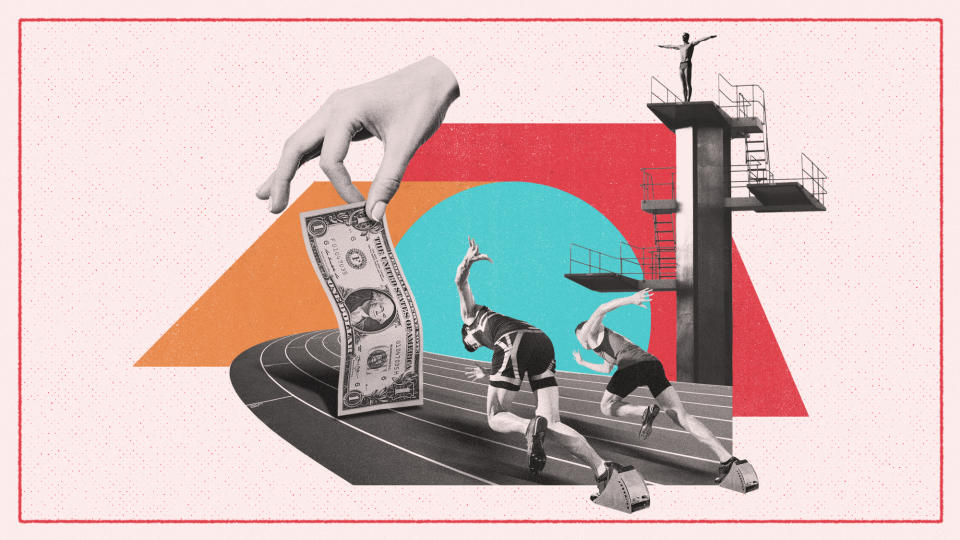Should Olympic athletes get paid?

In 1986, the International Olympic Committee (IOC) amended its governing charter to encourage "all the world's great male and female athletes to participate." While the language may seem benign, the charter revision was a bombshell event for the athletic institution, then almost a century old. For the first time since its creation in the late 19th century, the modern Olympics would allow professional athletes to compete alongside what had formerly been a vigilantly guarded roster of amateurs. The games would never be the same again.
Now, with all eyes on Paris ahead of the upcoming 2024 summer Olympics, this year's games will experiment with a similarly historic change. Some athletes, for the first time in Olympic history, will be paid by an international body for their participation, marking a new chapter for competitors and the competitions alike. In a statement released earlier this month, World Athletics president Sebastian Coe announced his organization — the "world governing body for the sport of track and field athletics" — will award $50,000 to each gold medal winner in the Olympics' 48 different track and field events. The initiative also includes a "firm commitment to extend the prize money at a tiered level" for other medalists in the 2028 Los Angeles games.
While it is impossible to affix a dollar amount on being an Olympian, Coe said, it is nevertheless "important we start somewhere and make sure some of the revenues generated by our athletes at the Olympic Games are directly returned to those who make the Games the global spectacle that it is."
What did the commentators say?
In spite of Olympic athletes "often receiving payments from sponsors and professionals taking part for years," moving to actively pay competitors is a "major shift" for the games, Reuters said. While track and field remains one of the largest and most watched portions of the Olympics, the "vast majority of athletes, including many medalists, face a constant struggle for funding." Though some countries do financially compensate their Olympic athletes, "the amounts vary," The Washington Post said, noting that the U.S. Olympic Committee's payments after the 2021 Tokyo Summer Games "sit on the lower end of cash incentives globally." For competitors whose sports "don't have professional leagues and who don't take the podium at the Olympics, finances can be precarious."
"I'm hopeful that … can move into all other sports, as well," Team USA diver Andrew Capobianco told The Associated Press. "They're trailblazers for that." Capobianco added that "more money for Olympic athletes, especially the smaller sports, would be great."
Not everyone is so enthusiastic, however. British Olympic Association chief Andy Anson criticized World Athletics' move in an interview with Sky News, explaining that "when one sport goes off and does something on their own, doesn't include the sports, doesn't include the IOC, doesn't include the National Olympic Committees," it can create a situation where "other sports are clearly going to get some scrutiny or even pressure from athletes saying, 'Well what about us? How can this sport do it and not others?'" Anson's sentiment was shared by Union Cycliste Internationale president David Lappartient, who called the unilateral announcement "not the Olympic spirit."
What next?
World Athletics' prize money will be pulled from the "International Olympic Committee's revenue share allocation, which is received by World Athletics every four years," the group said. In a statement to NBC, the IOC stressed that it is "up to each International Federation and National Olympic Committee to determine how to best serve their athletes and the global development of their sport." But, NBC noted, a "domino effect could ensue as the athletic world reacts."
Ultimately, Coe explained, compensating athletes as a global body will not "remotely" damage the Olympics' philosophy of equitable sportsmanship. Rather than "singing a good song about how important [the athletes] are" that praise "needs to be reflected," he told Sky News. "Not everybody is going to win an Olympic title at 100 meters or 1,500 meters," said Coe. "We've got 48 disciplines, and this will help the athletes."

